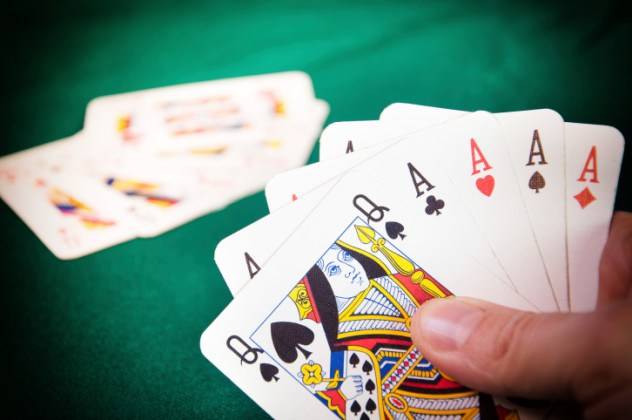Like most other people, I take many things for granted on a daily basis. I often forget to stop and appreciate the little things in life. Honestly though, who takes the time to appreciate these major contributions to society? People gloss over these advancements every day and forget that they can’t live without them, no matter how simple they seem.
1. Spices and Seasonings
Salt was the major driving economical force for the vast majority of human history. It preserved food in a time before refrigeration. In fact, we derived the word “salary” from “salarium,” which was the money that Roman soldiers used to buy salt. Similarly, sugar was first found in New Guinea around 10,000 B.C. and rapidly made its way to Asia (and eventually Europe). Soldiers in traveling war parties would discover the “kind of honey, like salt” phenomena and rave about it back home. Finally, pepper was the season of choice for the rich. Ships carrying it would treat it like modern-day gold, and it was often buried with royalty, including the Pharaohs.
2. Metric System
There are three countries in the world that don’t follow the metric system: Liberia, Myanmar, and the United States. Though Liberia partially adopted it, and Myanmar is transitioning, meaning the U.S. is the lone hold-out since its introduction in 1795.
3. Feminine Hygiene Products
Dealing with menstruation is an issue since dating back to ancient Egypt. Back then, people used a variety of materials to make tampons, such as papyrus, wool, animal skins, and even grass. In 1896, Johnson & Johnson developed the first packaged menstrual pads, which flopped since women weren’t willing to buy such materials in public.
4. Utensils
Forks were not unknown to cultures in the past, but they were highly shunned as “ungodly,” “unmanly,” and “Lucifer’s pitchfork.” It wasn’t until the 17th century when King Louis XIV outlawed pointed knives. Using forks became more widely accepted among non-royalty in Europe, and spread everywhere else. They did not reach countries using chopsticks, of course, as they started using wooden sticks to get food out of the bottom on pots over 5,000 years ago. Due to food sizes, forks were considered the better utensils as they did away with the need for knives at the table. Forks are now a staple in Asian cultures.
5. Playing Cards
Playing cards likely originated from Arabic sources. The original suits were cups, swords, coins, and polo sticks. It wasn’t until the Chinese adoption of cards around 800 AD, followed by Europeans in the 17th century, when the modern day hearts, clubs, spades, and diamond suits took over.
6. Crime and Punishment
Punishing people for crimes is an everyday common occurrence and dates back to the days of Babylon. In the days of the Greeks and Romans, the penalty for a crime was typically either house arrest (for the rich), or death (for everyone else). Did you know that debtors were sent to prison as early as the 16th? In fact, they served hard labor, and often served maximum (re: loooooooong) sentences, where they often died from poor conditions.
7. Bras
According to the U.S. Patent Office, 19-year-old Mary Phelps Jacob invented the first bra in 1910. However, recent archaeological evidence shows that women wore linen bras dating back to the 1400s. Since the 1910 invention, the bra went through advancements. The Wonder Bra saw a release in 1967 but was invented in 1946 by Frederic Mellinger and first called “The Rising Star.”
8. Selfies
The world’s first selfie took place in Philadelphia in 1839 by amateur chemist Robert Cornelius. Using state-of-the-art technology (a daguerreotype) Cornelius stood slightly off-center while peering into the mechanism before taking the photo. He wrote the words “The first light picture ever taken. 1839” on the back of the photo.
9. Toilet Paper
Toilet paper dates back to 6th century China. It was first mass manufactured in 1391 when the Emperor ordered a year’s worth (720,000 sheets) for his own personal use. Funny enough, when Muslims visited China in the ninth century, they were aghast at the Chinese practice. Remarks were made with disgust that the Chinese were “not careful about cleanliness—they do not wash themselves with water, but they wipe themselves with paper!”
10. Divorce
Divorce is quite common in history. In ancient Egypt, marriage had no judicial consequence, consisting simply of a man and woman living under one roof. Greek judges would often grant divorces and view marriages objectively. In Japan, if a husband refused to grant a divorce, the wife could elect to live in a temple for three years, after which the marriage was automatically dissolved. Viking women were even welcome to leave their men if they were unable to provide for the family.
(via Listverse)
Try not to take these modern parts of life for granted. They may be commonplace, but without them, so much would just be awful.
 share
share
 share
share
 share
share
 share
share
 share
share
 share
share
 share
share
 share
share
 share
share
 share
share



